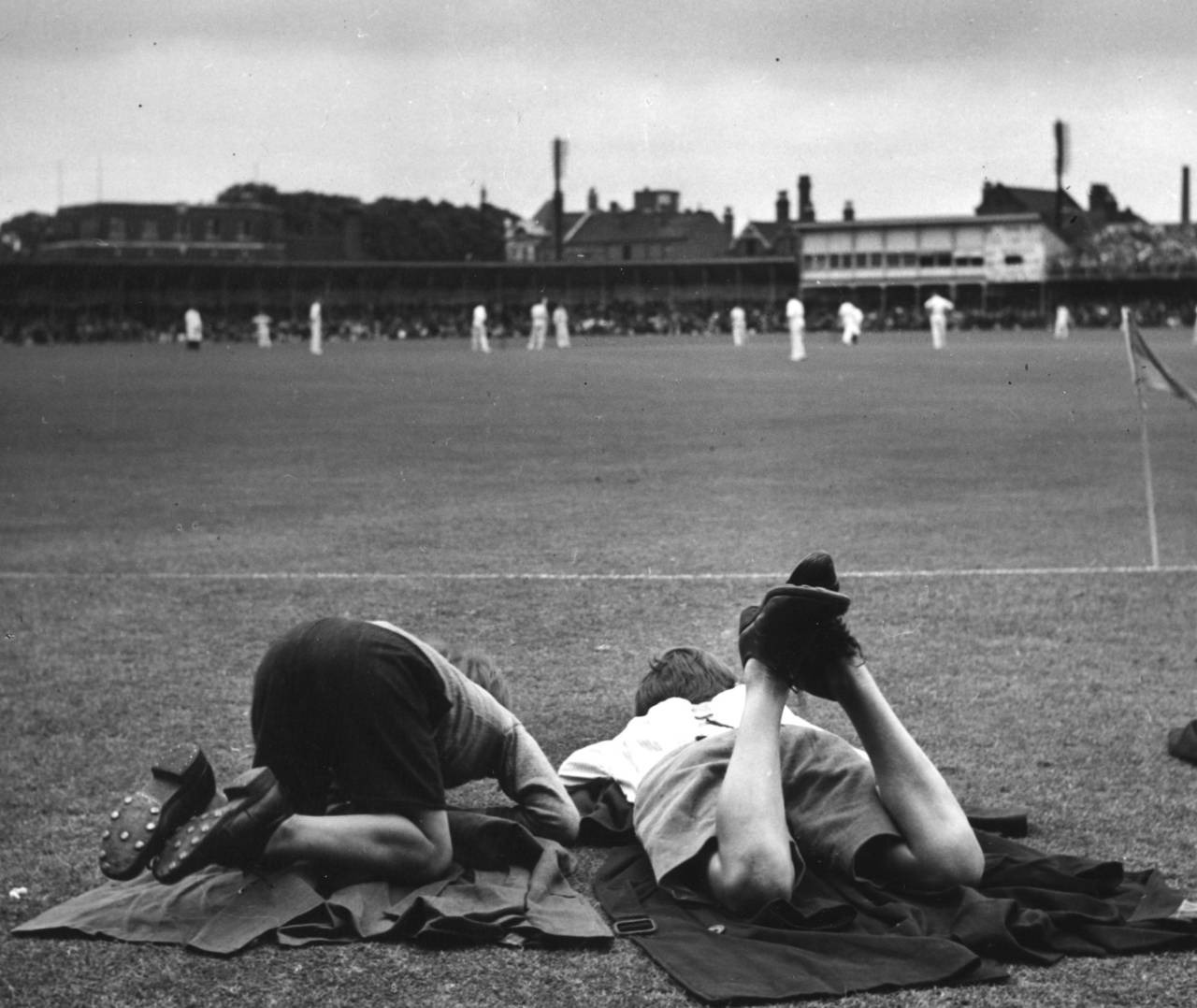Last month, I travelled to India with my family for a four-week vacation. As my wife and I quickly discovered, traveling long distance with a ten-month old infant is no laughing matter; very quickly, we found ourselves exhausted and worn out; for the first time ever on any trip I have undertaken to India, I found myself wishing I had planned a shorter one. I had not, as some of my fellow cricket fans might have surmised, planned this trip around Sachin Tendulkar's farewell, but nevertheless I was glad to be in the country when it did happen, happy enough to take advantage of this fortuitous coincidence. The sense of occasion was often palpable and I quite enjoyed monitoring the India-West Test series on television sets located in a variety of vantage points and venues: airport lounges, living rooms, coffee shops, restaurants, and on one memorable occasion, a shack on Goa's Baga Beach.
These varied monitorings of the proceedings of Test matches reminded me, as I often am, that a Test is quite a distinctive sporting event. Its length (and perhaps breadth) turns its following into one which is more similar to the kind of attention paid to other sporting events that are spread out over an extended period of time. In this dimension, a Test is not like a baseball game or tennis or football, to which it is often unfairly and inaccurately compared. Rather it is more like a golf tournament, spread out over several days, with advantage and momentum ebbing and flowing first one way and then the other, the distinctive set of numerical parameters associated with it ticking away, their changes of acute interest to its fans.
The old stories of fans who watch Tests - whether at the ground or on the television - with one eye on the proceedings are well known, of course. And given the time-consuming hurly-burly of modern life, it is entirely unsurprising that such partial attention is ever more common than it used to be. In my case, I had places to go, people to meet, a "vacation schedule" to conform to; there was little time for me to sit down, pull up a chair, put up my feet and pay undivided attention to the game. (I can only remember two such occasions during my trip - once at Goa, and once while waiting for some bank papers to be processed - when this sort of leisurely following was possible.) But a corner of my mind - a small one, but present nonetheless - remained concerned with the score and the evolution of its participant's fortunes. When the opportunity presented itself, I checked in, satisfied myself with an update and carried on.
I was not the only one behaving thus. At my uncle's residence in central India, a television in the living room - tuned to the live telecast of the
Kolkata Test - remained on all day as household members went about their various engagements; every once in a while, someone would walk through the room, stop for a minute, watch a delivery or two, check the score and carry on; no one, it seemed, could ignore the game, even as their daily life's responsibilities ensured their preoccupation could only be a secondary one.
This is not to suggest the Test was relegated to background noise; it's just that a Test attracts all sorts of attention, and the measure of interest in this form of cricket cannot be judged merely by "bums on seats". A Test becomes enmeshed in daily life, in its rhythms and flows, in many different ways; its fans may even rely on its presence as a comfort of sorts, one that helps them deal with life's often anxiety-inducing pressures and restrictions.
Small wonder then, that the end of a Test is always marked by some melancholy. For a moment, something vital, a companion of sorts, has gone out of our lives.
